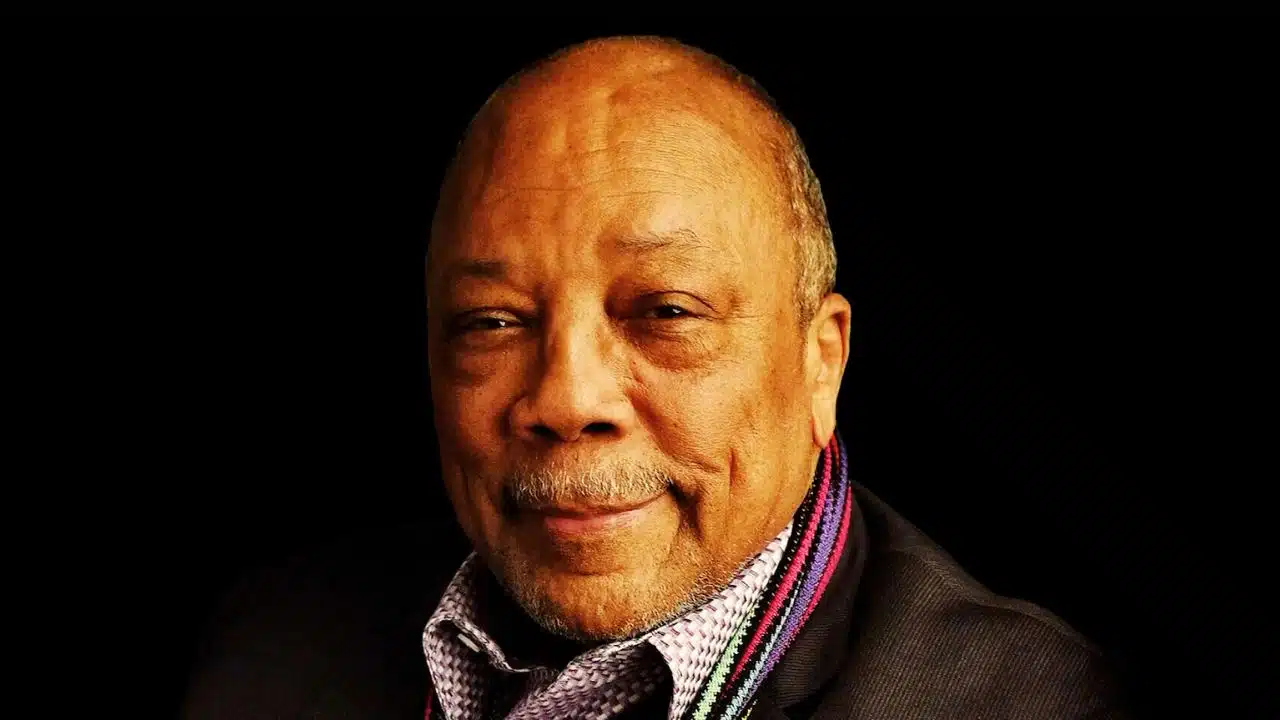Music fans around the globe are united in mourning the profound loss of Quincy Jones, a celebrated icon and musical genius who passed away on November 4, 2024, at the age of 91. Renowned for his extensive contributions to the music industry, Jones leaves behind a legacy that has not only touched countless lives but also significantly influenced artists across diverse genres, shaping the course of contemporary music as we know it.
A Seattle Native with Deep Roots in Music
Quincy Jones was born on March 14, 1933, in Chicago, Illinois. His family relocated to Bremerton, Washington, during World War II, eventually settling in Seattle. This city, known for its vibrant music scene, became the fertile ground where Jones’s remarkable talent began to flourish. After graduating from Garfield High School in 1950, Jones’s musical journey took flight, leading him to play trumpet in various jazz bands. In 2008, the auditorium at Garfield was named in his honor, a fitting tribute to a man whose early experiences there helped shape his illustrious career.
The Quincy Jones Performing Arts Center, as it is now known, stands as an enduring testament to his contributions to the arts and his commitment to nurturing the next generation of musicians. This center not only celebrates his achievements but also serves as a beacon for aspiring artists, inspiring them to pursue their dreams and carry forward the legacy of musical excellence that Jones epitomized.
From Jazz Trumpet to Global Stardom
Quincy Jones’s musical career began with his exceptional talent as a jazz trumpet player. His initial foray into music mirrors the rich musical heritage of Garfield High School, which has produced other notable alumni, including acclaimed jazz trumpeter Thomas Marriott. Over the years, Jones evolved into a multi-faceted producer and composer, transcending genres and redefining musical boundaries.
Perhaps most famously, he is known for his groundbreaking work on Michael Jackson’s Thriller, an album released more than 40 years ago that redefined pop music and catapulted Jackson into global superstardom. Thriller not only became the best-selling album of all time but also transformed the music video into a vital artistic medium. Quincy Jones’s innovative production techniques and keen ear for talent were instrumental in crafting the album’s distinctive sound, which seamlessly blended elements of pop, rock, and funk.
Jones’s reputation as a musical genius was not confined to his work with Jackson. Throughout his career, he collaborated with an impressive roster of artists across various genres, including Frank Sinatra, Aretha Franklin, and Miles Davis. His ability to adapt and innovate within different musical styles showcased his versatility and commitment to artistic excellence.
An Unmatched Legacy of Awards and Recognition
Quincy Jones’s remarkable career is backed by an astonishing collection of accolades, reflecting his unparalleled contributions to the music industry. He won 28 Grammy Awards, making him one of the most awarded individuals in Grammy history. Additionally, he received a Tony Award for his work in theater and earned seven Academy Award nominations for his contributions to film music, winning the Academy’s Jean Hersholt Humanitarian Award in recognition of his humanitarian efforts and philanthropic work.
Jones’s awards are a testament to his multifaceted talent and the breadth of his impact. His work not only entertained millions but also broke down cultural barriers, bringing people together through the universal language of music. His friendship with fellow musician Frank Sinatra, who affectionately referred to him as “Q,” exemplifies the deep respect he garnered from his peers. Their collaboration produced timeless music that continues to resonate with audiences today.
Breaking Barriers in Music
Throughout his life, Quincy Jones challenged the norms of the music industry, demonstrating a remarkable ability to transcend traditional barriers. He was not confined by genre, audience, or race; instead, he embraced a wide array of musical influences to create works that resonated with a broad spectrum of listeners. Jacob McMurray, Chief Collections & Exhibition Officer at the Museum of Pop Culture, emphasized this aspect of Jones’s artistry, stating, “He was able to look at music that wasn’t delineated by genre or by audience or by race, but really thinking across all of these different things.”
Jones’s approach to music reflected a deep understanding of the cultural context in which he operated, allowing him to weave together sounds and styles that spoke to diverse audiences. His ability to produce music that was not only entertaining but also intellectually engaging set him apart from his contemporaries. For many artists and musicians, Quincy Jones served as a role model, inspiring them to explore the richness of musical diversity and break free from conventional boundaries.
Continuing the Legacy in Seattle
Even in his passing, Quincy Jones’s influence continues to be felt in Seattle, where his legacy is being actively promoted and preserved. Notably, Thomas Marriott, a fellow jazz musician and Garfield High School alum, is leading the charge with the Seattle Jazz Fellowship to elevate jazz as a cornerstone of the cultural fabric in the city. Marriott and his team aim to establish jazz as an institution in Seattle, comparable to the ballet, opera, and symphony. This initiative not only honors Jones’s contributions but also seeks to inspire future generations of musicians to explore and embrace the art form.
Marriott stated, “We want to ensure that jazz remains a vital part of Seattle’s musical landscape. Quincy Jones’s legacy is our foundation, and we aim to build upon it.” This commitment to preserving jazz in Seattle highlights the community’s dedication to honoring Jones’s memory while nurturing the next wave of talent.
A Lasting Impact
As the world reflects on Quincy Jones’s life and career, it is clear that his impact on music is both profound and enduring. His innovative spirit, artistic excellence, and dedication to humanitarian causes have inspired generations of musicians, producers, and fans alike. Quincy Jones may have left us, but his music, influence, and spirit will continue to resonate for years to come.
In remembrance of Quincy Jones, fans and fellow musicians alike are sharing their tributes and celebrating his life through social media, performances, and community events. His contributions to music will forever be cherished, ensuring that the rhythms he created and the boundaries he pushed will live on in the hearts of those who appreciate the transformative power of music. The world has lost a true visionary, but his legacy as one of the greatest musicians of all time will endure, inspiring new generations to pursue their passions and continue his mission of breaking down barriers through music.
The Information is Collected from Billboard and Yahoo.




































